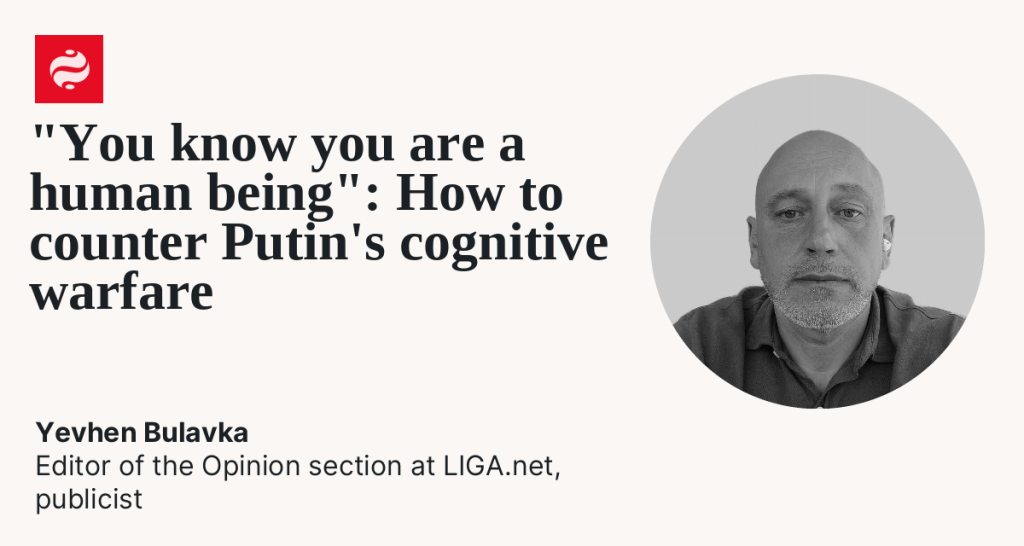Listen to the article
The escalating threat of cognitive warfare, particularly from Russia, demands a more sophisticated understanding beyond traditional concerns about fake news and disinformation. This evolving battlefield requires new defensive strategies as conventional approaches to media literacy show their limitations.
Cognitive interaction is fundamental to human experience. We engage in forms of persuasion daily—whether convincing colleagues to support a project or encouraging children to complete homework. These everyday examples of influence operate on a small scale with typically benign intentions.
What distinguishes Russia’s cognitive warfare efforts is both scope and objective. The Kremlin has developed a global strategy with targeted pressure points and explicitly destructive goals. At its core, President Vladimir Putin appears focused on a dual objective: forcing Ukraine’s surrender while compelling Western powers to accept this outcome.
This represents a significant evolution in information warfare tactics. For years, Western democracies have emphasized fact-checking and media literacy as primary defenses against disinformation. However, evidence suggests the Kremlin has adapted its approaches to circumvent these countermeasures, rendering traditional defenses increasingly ineffective.
The sophisticated nature of Russia’s strategy resembles the social engineering described in Aldous Huxley’s “Brave New World”—where the manipulation centers on “Community. Identity. Stability.” Modern cognitive warfare similarly targets foundational social concepts and shared realities, attempting to fragment unified responses to aggression.
Security experts note that Russia’s approach has moved beyond simply spreading false information. Instead, it focuses on exploiting cognitive vulnerabilities—psychological tendencies that affect how people process information and make decisions. These operations target emotions, exploit confirmation bias, and manipulate existing social divisions rather than creating entirely new narratives.
In Ukraine, this cognitive dimension complements conventional military operations, aimed at undermining national resolve and fracturing international support networks. For Western democracies, the attacks seek to weaken consensus on supporting Ukraine and maintaining sanctions against Russia.
The effectiveness of these measures stems partly from their subtlety. Unlike obvious propaganda, cognitive warfare often operates below conscious awareness, making defenses difficult to implement. Targets may not realize their perspectives are being shaped by external influences designed to advance foreign interests.
This evolution demands a more sophisticated counter-strategy. Traditional media literacy programs remain necessary but insufficient when facing adversaries who have learned to work around fact-checking mechanisms. Effective responses require understanding the psychological dimensions of information processing and developing resilience at both individual and societal levels.
Several democracies have begun developing more comprehensive approaches. Finland’s multi-layered strategy, which integrates media literacy education from early schooling with broader societal awareness initiatives, offers a potential model. The Finnish approach emphasizes critical thinking skills alongside a strong sense of national identity that provides resistance to divisive narratives.
Security analysts emphasize that identifying the core vulnerabilities being exploited is crucial to building effective defenses. This means analyzing how Russian cognitive operations target fundamental aspects of democratic societies—trust in institutions, social cohesion, and confidence in shared facts.
As this cognitive battlefield continues to evolve, the challenge extends beyond government responses alone. Civil society organizations, educational institutions, and media companies all play essential roles in building societal resilience. The most effective approaches will likely combine technological solutions with human-centered strategies that strengthen critical thinking skills while preserving democratic values.
Understanding that we are targets in this cognitive war represents the first step toward developing effective countermeasures. The ultimate defense lies not just in identifying false information, but in strengthening the social and psychological foundations that allow democratic societies to maintain shared understanding even amid deliberate attempts at manipulation.
Verify This Yourself
Use these professional tools to fact-check and investigate claims independently
Reverse Image Search
Check if this image has been used elsewhere or in different contexts
Ask Our AI About This Claim
Get instant answers with web-powered AI analysis
Related Fact-Checks
See what other fact-checkers have said about similar claims
Want More Verification Tools?
Access our full suite of professional disinformation monitoring and investigation tools




11 Comments
The focus on preserving identity and resisting manipulation is important. Fact-checking and media literacy have limitations, so new approaches are needed to address the evolving threat of cognitive warfare.
Agreed. This requires a more nuanced understanding of how persuasion and influence operate, beyond just identifying false information.
Interesting to see the analysis of how cognitive warfare differs from traditional disinformation campaigns. The dual objective of forcing Ukraine’s surrender while compelling Western acceptance is a concerning strategy.
Yes, the shift in tactics highlights the need for more sophisticated defensive measures. Relying solely on fact-checking may no longer be sufficient.
The article raises important questions about the effectiveness of traditional media literacy approaches in addressing the complex challenge of cognitive warfare. Developing new defensive strategies will be crucial.
This is a concerning development, as cognitive warfare can be harder to detect and counter than traditional disinformation tactics. Understanding the Kremlin’s strategic objectives is key to developing effective defensive measures.
The article raises important points about the limitations of current approaches to media literacy and the evolving nature of information warfare. Developing new strategies to counter cognitive warfare will be crucial.
Cognitive warfare seems to be a more insidious and challenging form of disinformation to combat. The focus on identity preservation and influencing perceptions is particularly worrying.
Interesting to see the analysis of how cognitive warfare differs from traditional disinformation campaigns. The dual objective of forcing Ukraine’s surrender while compelling Western acceptance is a concerning strategy.
This is a timely analysis of the threat posed by cognitive warfare. The Kremlin’s strategic objectives and the limitations of existing defenses highlight the need for a more comprehensive approach.
Agreed, the article provides valuable insights into the evolving nature of information warfare and the importance of adapting our responses accordingly.